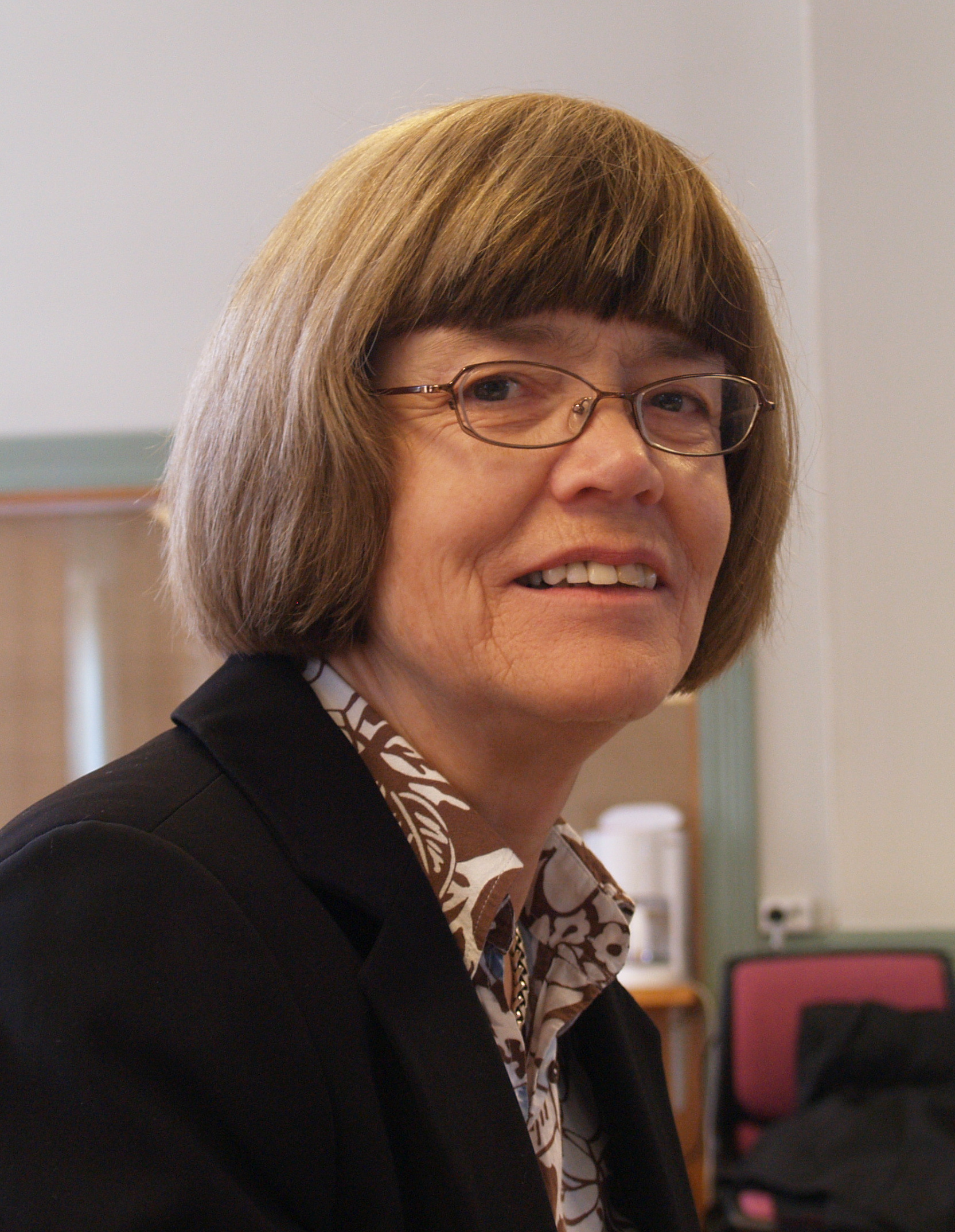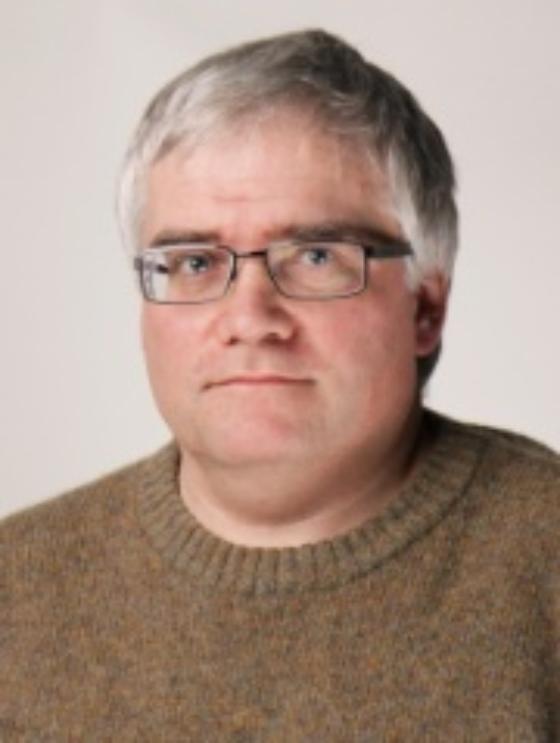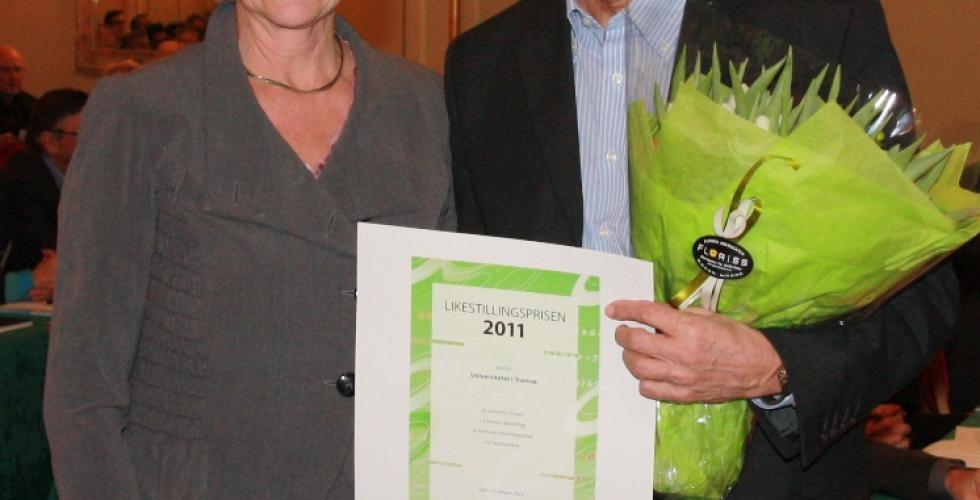Gains inspiration from outside
UiT – The Arctic University of Norway is using the prize money from the Gender Equality Award to gain new inspiration from Norway and abroad. Eight new adjunct professor positions have been created.
“We received so many good applications that we decided to spend more than the prize money,” says Marit Fagerheim, a senior adviser at UiT.
She has played a key role in the efforts to create the new professorships. By supplementing the NOK 2 million from the Gender Equality Award 2011 with its own funding, the university has been able to create eight new adjunct professor positions for two years. The task of the new professors is to implement the gender dimension in research and teaching at UiT –The Arctic University of Norway, which was recently established from the merger of the University of Tromsø and Finnmark University College.
International recruitment
The Gender Equality Committee at UiT has made its recommendations and the professors are now being appointed. All of the new professors are women.

“It’s a coincidence that it was women who were hired for these positions. We didn’t set any guidelines about this and we had wanted some men who conduct research on gender equality issues, but unfortunately we didn’t get any,” says Fagerheim.
UiT has searched internationally and hired established professors with a variety of perspectives on gender and gender equality from Sweden, Australia, Wales and Germany, in addition to Norway. They will serve as advisers on research design and project organization. Their positions are part-time (20 percent).
“The purpose is to enhance the research quality. We want to hire talented researchers who are leaders in their fields, who inspire others, and who can make research smarter. Women are often poorly represented in the research community, which may mean that some perspectives are not included,” says Fagerheim.
“Prize money used well”
The adjunct professor positions that were originally advertised also included teaching duties, but since very few applications addressed the teaching aspect, the university decided to focus on research instead. The reasoning was that teaching is research-based, and therefore a focus on research would have an impact on teaching.
Jarle Aarbakke, Rector of UiT, is pleased with the way the prize money is being used.

“I’m very satisfied. We had a general discussion within the leadership team in advance about how we could get the most out of the prize money. The adjunct professor positions will help to improve the gender balance at the university. It also sends a signal that adjunct professorships are just as open to women as to men. I think this will help to recruit more women to senior-level positions at the university, together with other measures that have also drawn attention to us both nationally and internationally.”
Both better gender balance and better research
Aarbakke believes that hiring the eight professors will enhance the quality of research.
“We operate from the assumption that drawing on the potential inherent in the population as a whole, that is to say both genders, will enhance quality,” says Aarbakke.
Fagerheim elaborates on this.
“It’s crucial to have a diverse environment comprised of people of various ages, genders, backgrounds and the like. This results in better research because it brings to the fore more dimensions of the topic being studied. Questions are asked that would not otherwise be raised.”
The university’s decision on how to prioritize use of the prize money arose from a course that made the leadership aware of the importance of gender perspectives, including in research that does not primarily entail gender issues.
“We held a course that many research directors participated in at the beginning of this application round. This has contributed to knowledge in the field. It opened many people’s eyes. We became aware that gender is not uninteresting in research and that it applies to all subject areas, not just the social sciences. One example is the design of seat belts. They are designed in a way that makes them dangerous for pregnant women to use because the entire population in all phases of life was not taken into account when they were designed. From what perspective do you view the world? What do you see and what don’t you see?”
More cross-disciplinary cooperation
Hans-Kristian Hernes, Vice Dean of the Faculty of Humanities, Social Sciences and Education, has actively participated in gender equality planning at the university for many years. His faculty is one of those that got a new adjunct professorship. Diana Mulinari, a professor of gender research at Lund University in Sweden, is now in meetings with the faculty to talk about her upcoming work with the university. The plan is that she will work together with another one of the eight newly appointed professors at UiT’s Centre for Women’s and Gender Research.

“We have made a concerted effort to link the various research environments. Some conduct research on gender, others study indigenous peoples, and still others focus on social research and peace issues. The idea is that we can tie these environments together and create joint seminars and events,” says Hernes.
Mulinari has focused her research on the migration of human populations. At UiT she will organize scholarly events and workshops, encourage researchers to meet and exchange scientific perspectives, and establish research groups. She will link gender research with other research areas, and serve as a liaison with other universities. Hernes believes Mulinari’s work may be of interest in connection with research on women who cross the border from Russia, which is a current area of research at the university.
Hernes is concerned with strengthening the focus on gender as well as on groups in society who struggle with issues of recognition and inclusion such as indigenous peoples, which is a popular research topic at the university.
A shot in the arm
“This might serve as a shot in the arm that creates a better research institution. We bring in someone from the outside who can take a fresh look at our environments. I think this will get people to see things in a new way – this applies to both women and men.”
Hernes hopes that Mulinari will serve as a mentor at the university, and as she develops research environments and inspires others, more women will be encouraged to pursue a career in research.
“This measure alone is not enough. Other instruments are needed as well. But I think it’s a good way to use the prize money from the Gender Equality Award. When the funding is used up, we need to see whether we have made progress and how we can continue the effort. The idea is to launch projects that last longer than the two years we have money for. This can make us attractive with regard to recruiting outside the university and creating better research environments.”
Translated by Connie Stultz.
The University of Tromsø and Finnmark University College merged on 1 August 2013. The new institution is called UiT – The Arctic University of Norway.
UiT received the Gender Equality Award 2011 from the Ministry of Education and Research and is using the prize money to fund eight new adjunct professorships in the area of gender and gender equality.

